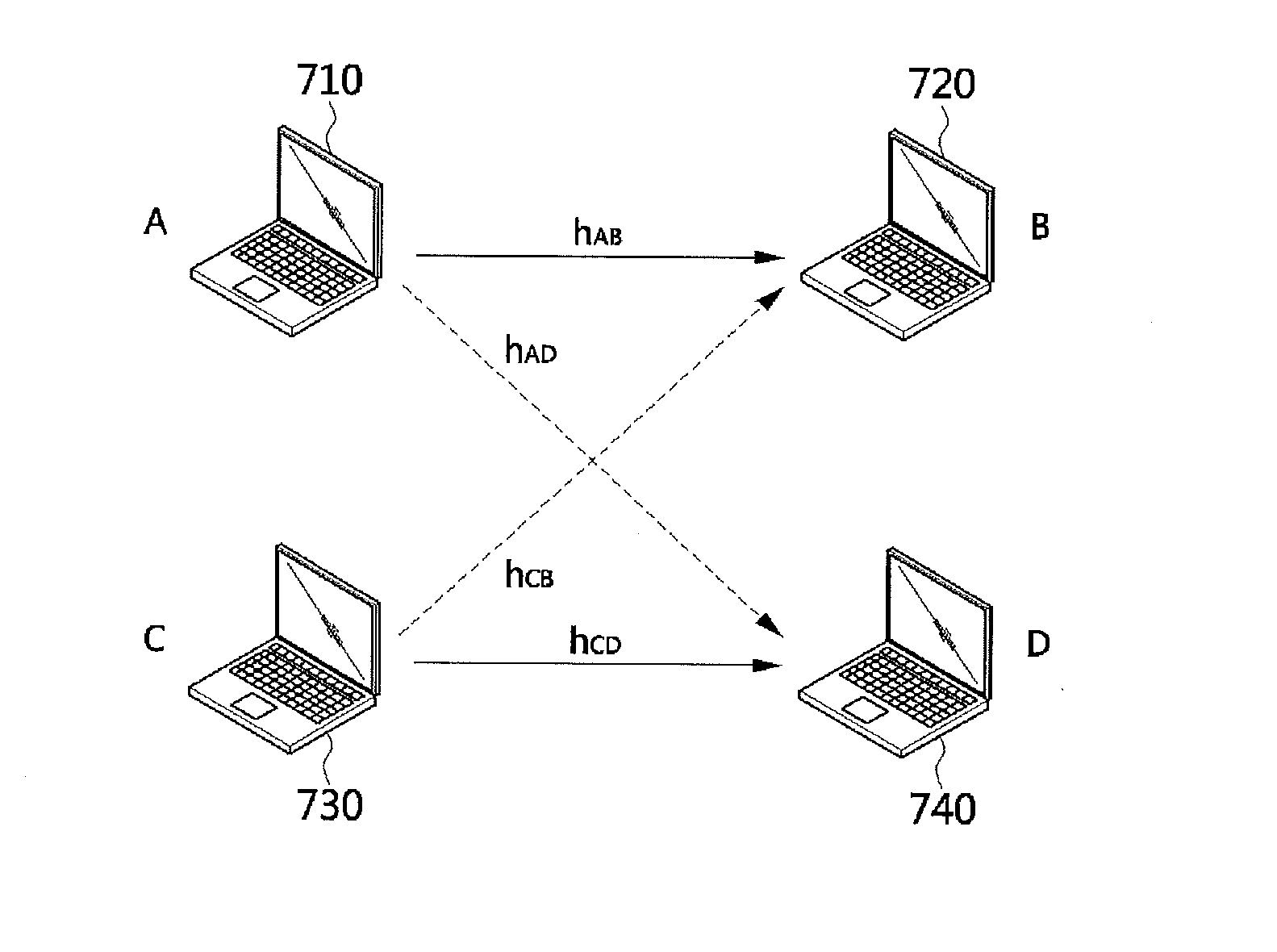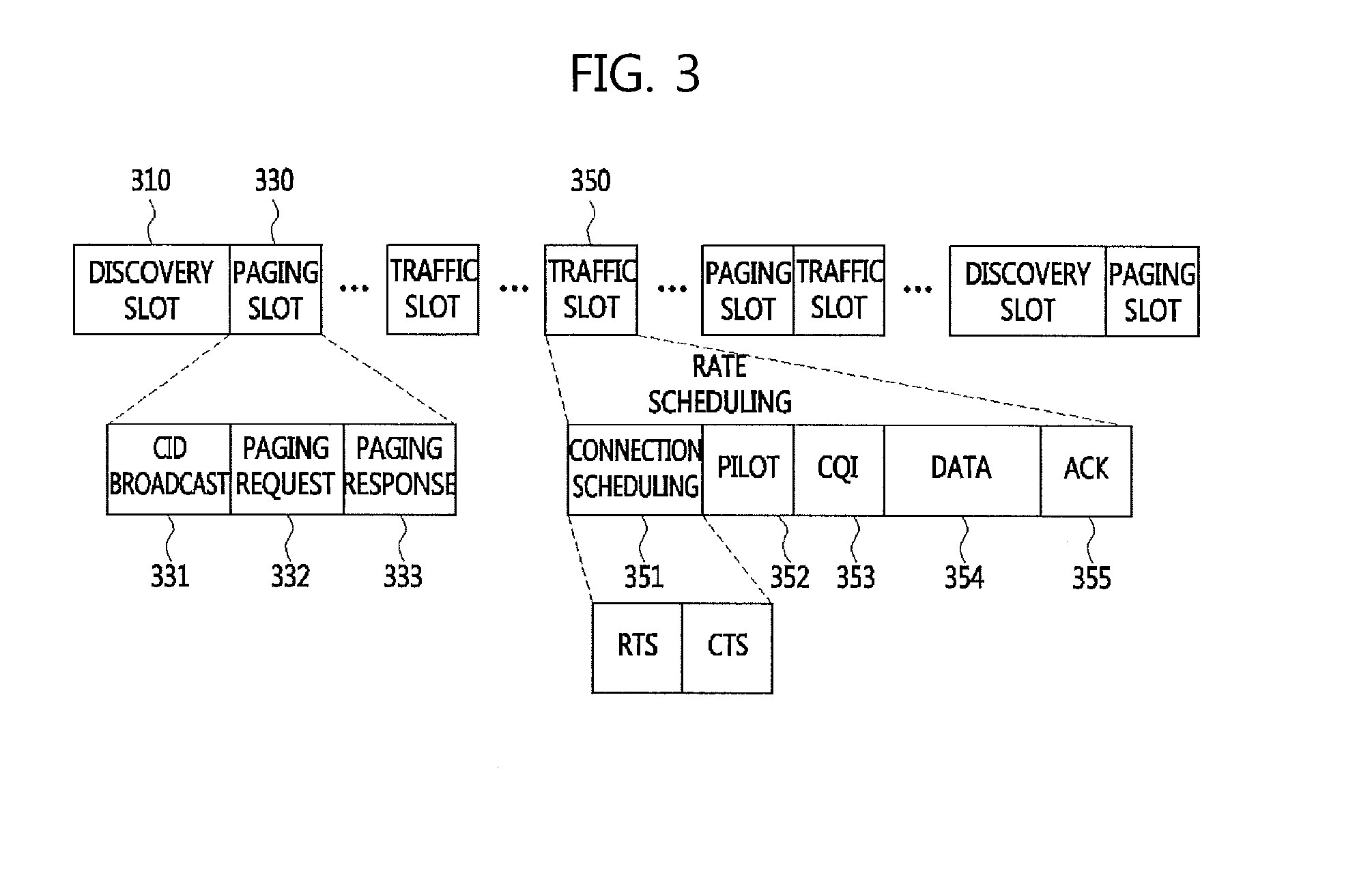Methods of device to device communication
a communication method and device technology, applied in data switching networks, instruments, frequency-division multiplexes, etc., can solve the problems of inability to achieve delicate resource allocation, increase waste and delay of wireless resources, etc., and achieve the effect of improving the performance of wireless links and improving the utilization efficiency of wireless resources
- Summary
- Abstract
- Description
- Claims
- Application Information
AI Technical Summary
Benefits of technology
Problems solved by technology
Method used
Image
Examples
Embodiment Construction
[0048]Example embodiments of the present invention are described below in sufficient detail to enable those of ordinary skill in the art to embody and practice the present invention. It is important to understand that the present invention may be embodied in many alternate forms and should not be construed as limited to the example embodiments set forth herein.
[0049]Accordingly, while the invention can be modified in various ways and take on various alternative forms, specific embodiments thereof are shown in the drawings and described in detail below as examples. There is no intent to limit the invention to the particular forms disclosed. On the contrary, the invention is to cover all modifications, equivalents, and alternatives falling within the spirit and scope of the appended claims. Elements of the example embodiments are consistently denoted by the same reference numerals throughout the drawings and detailed description.
[0050]It will be understood that, although the terms fir...
PUM
 Login to View More
Login to View More Abstract
Description
Claims
Application Information
 Login to View More
Login to View More - R&D
- Intellectual Property
- Life Sciences
- Materials
- Tech Scout
- Unparalleled Data Quality
- Higher Quality Content
- 60% Fewer Hallucinations
Browse by: Latest US Patents, China's latest patents, Technical Efficacy Thesaurus, Application Domain, Technology Topic, Popular Technical Reports.
© 2025 PatSnap. All rights reserved.Legal|Privacy policy|Modern Slavery Act Transparency Statement|Sitemap|About US| Contact US: help@patsnap.com



